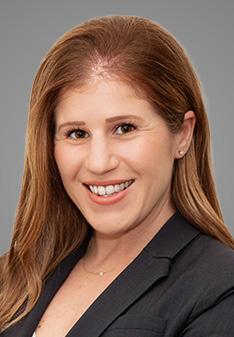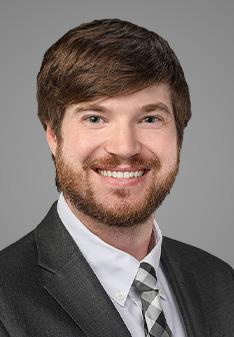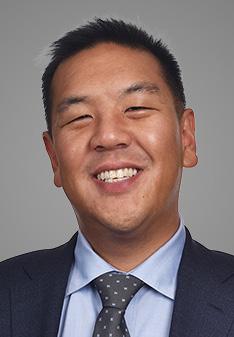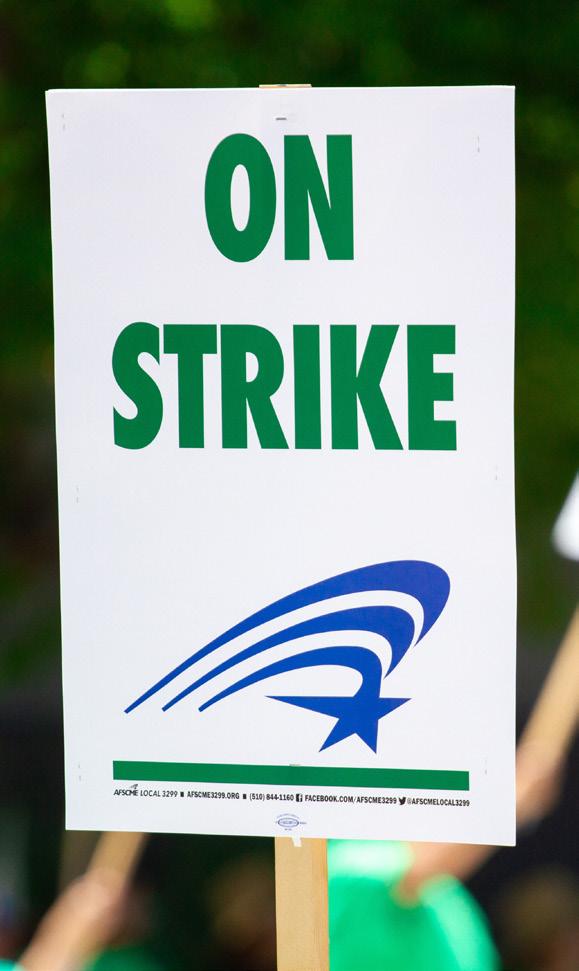Fire Watch









A Deputy Sheriff’s Union (Union) filed a grievance against the Sheriff’s Department for failing to properly compensate one of its Deputy Sheriffs for work he allegedly performed as a Bonus I Field Training Officer (FTO). The Deputy was assigned as a FTO at various times between August 2017 and February 2019, but the Deputy did not have a formally assigned trainee or sufficient coverage time as a “relief” FTO to qualify for the bonus pay for that entire period. The Department inadvertently overpaid the Deputy for a seven-month period due to a late notification that his trainee assignment had ended. The Department then issued a letter requesting a return of the overpayment.
The Union’s grievance argued that the alleged overpayment was inaccurate and the Deputy should owe nothing. The Union further argued that a failure to assign the Deputy trainees while the Deputy was in the Bonus I FTO position was a “de facto removal” from that assignment.
The Arbitrator disagreed. The Arbitrator first found that the MOU language stated that Bonus I FTO pay will only be issued when the FTO has assigned a trainee. The MOU accounted for situations, such as this one, where a Deputy held a Bonus I position but was not assigned a trainee. Moreover, the three individual days of random relief assignments the Deputy took on were not sufficient to qualify the Deputy for the Bonus I FTO pay, because the MOU required 20-day relief assignments to qualify for payment of the training bonus. Finally, the fact the Deputy was assigned a trainee after the period when the Deputy alleged he had been removed from the FTO position showed that he had not been “de facto removed” from his position, as the Union alleged.
The Arbitrator decided the Department did not violate the MOU, and was contractually entitled to seek the overpayment.
Around November 2022, a District installed GPS systems in all its vehicles to monitor vehicle emissions and to identify safety or maintenance issues. The District had notified the Union local a month prior that the GPS program would also provide information about driver performance and would trigger corrective action for any employee-drivers who violated the District’s vehicle use policy. After meeting and conferring, the parties reached an agreement.
Early in 2023, the GPS program indicated that one employee – a Union steward – had a seatbelt violation of 15% during a three-month period. The Union steward received an oral warning that continued violations of the seatbelt policy could result in the loss of a “safety day” – a cash reward equivalent to nine hours’ pay or a day off for having a full year without a safety violation.
The Union steward filed an unfair practice charge (UPC) with the Public Employment Relations Board (PERB) that alleged that the District violated the MeyersMilias-Brown Act (MMBA) by retaliating against him for his protected activities as a Union steward. Notably, the Union itself did not file the UPC on the Union steward’s behalf. However, the Union steward subsequently designated a Union organizer to serve as his representative in the matter.
Following LCW’s submission of the District’s response, which identified numerous deficiencies in the UPC, the PERB Regional Attorney issued the Union steward’s
representative a warning letter. The warning letter explained that the UPC did not: describe any protected activities that the Union steward had participated in; or include a statement demonstrating how his protected activities were causally related to the oral warning about seatbelt violations. The warning letter allowed the Union steward a limited time to file an amended charge.
Although the Union steward timely attempted to withdraw the UPC himself, his designated representative did not. The PERB Regional Attorney spoke with the representative by telephone, followed up with two telephone messages, and emailed. When the representative did not formally withdraw by the deadline, the Regional Attorney dismissed the UPC based on all the reasons in the warning letter.
Dana Segal, an Associate in the Los Angeles office, provides advice and counsel on all employment law and litigation related matters. Prior to joining LCW, Dana served as a Deputy District Attorney in the Los Angeles District Attorney’s Office.

Louis Lee, an Associate in the San Francisco office, provides advice and counsel to our clients in all matters pertaining to labor and employment law. Louis has experience in all phases of litigation and has handled matters ranging from investigations and antitrust class actions to administrative actions and False Claims Act suits.


Kelsey Ridenhour, an Associate in the Los Angeles office, provides labor and employment law expertise in matters pertaining to our public agency clientele. Prior to joining LCW, Kelsey served as a Judicial Clerk with the Central District of California.


Please note: We will be providing Legislative Roundups next month in lieu of a newsletter. There will be no regular newsletter for November.
In April 2016, Elaine Estrada, a payroll employee with the City of La Habra Heights, was charged with unauthorized computer access, misappropriation of public funds, and embezzlement by a public officer for removing payroll deductions, resulting in her not paying the required employee share for dependents covered on her health insurance plan. The misconduct occurred between 2007 and 2009.
She subsequently entered into a plea agreement, which involved: pleading no contest to the unauthorized access to a computer system or network, but sentencing would be delayed for six months, at which time the felony plea would be vacated and a misdemeanor plea of no contest would be entered in its place. Additionally, she would return to the City the amount of money she owed and serve one year of probation starting on the date of her sentencing.
Estrada verbally acknowledged that she understood these terms and that a plea of no contest would be treated as a finding of guilt. Estrada’s plea was entered in June 2017. Estrada complied with her plea agreement and the charge was reduced from a felony to a misdemeanor. After serving one year of probation, the criminal case against her was dismissed in March 2019.
Meanwhile, the City submitted a forfeiture of benefits form to CalPERS that stated that Estrada had been convicted of a job-related felony. CalPERS notified Estrada that because
of her felony conviction, a portion of her accrued retirement benefits was subject to forfeiture. Government Code Section 7522.72, which was enacted as part of California’s pension reform in 2013, provides that if a public employee is convicted of a felony for conduct arising out of or in the performance of official duties, the employee forfeits certain accrued retirement benefits, which “shall remain forfeited notwithstanding any reduction in sentence or expungement of the conviction.” Estrada was also ineligible to return to CalPERS-covered employment or accrue further CalPERS benefits.
Estrada appealed the forfeiture action, arguing that she was not convicted of a felony because her felony had been replaced by a misdemeanor. An Administrative Law Judge issued a proposed decision denying the appeal, and the CalPERS Board of Administration adopted that decision which found that Estrada forfeited benefits from September 1, 2007, the earliest date of the commission of the felony, through June 28, 2017, the date of her felony conviction. Estrada then filed a writ in Superior Court, which was also denied. She appealed.
The California Court of Appeal agreed with all the prior decisions. It found that while the term “conviction” isn’t defined in Government Code Section 7522.72, it is recognized in California that a plea of guilty (and therefore, a plea of “no contest”) constitutes a conviction. As a result, once Estrada pled no contest to a felony charge related to the scope of her employment, she was effectively convicted of a felony at that time, for purposes of Section 7522.72, even if the felony was later reduced to a misdemeanor.

Tuesday, November 7, 2023
10:00 a.m. - 12:00 p.m.
With another legislative session over, the Legislature has once again introduced a number of bills intended to implement reforms to law enforcement and policing in California. This two hour webinar will cover the ins and outs of new legislation that will significantly affect the administration and day-today operations of public safety departments in a variety of ways, as well as an update on the ongoing implementation of the police certification framework and Senate Bill 2 clean-up legislation. This webinar will help attendees understand and navigate legal changes that will impact the administration and personnel management of public safety departments.
Register here!

Wednesday, October 11, 2023 | 10:00 a.m. - 12:00 p.m.
In this 90-minute training, which is the second in this series on public employee strikes, we will discuss recent developments in the law concerning strikes as well as practical issues related to strike management. We will discuss strategies and tactics regarding negotiations for line passes for essential employees in advance of a threatened strike and continuing contractual negotiations once a strike is underway. We will also provide information that will assist public employers during a work stoppage, including information related to managing security at strike sites as well as managing personnel issues, such as payroll, overtime and benefits issues, and repairing the employer-employee relationship following the conclusion of the strike. We will also discuss issues related to union or employee engagement in unlawful concerted activities during strikes as well as how to deal with sympathy strikes and employees who refuse to cross a picket line.
Register here!




 Amy Brandt
Nathan Jackson
Casey Williams
Alexander Volberding
Amy Brandt
Nathan Jackson
Casey Williams
Alexander Volberding
Operating Engineers Local 3 (OE3), AFL-CIO was certified as the exclusive representative of certain employees of the Consolidated Irrigation District. In January 2023, before the Union had negotiated a preliminary contract with the District, a group of District employees filed a petition to decertify the Union. In March 2023, the Union filed an unfair practice charge (UPC) alleging that the District had: facilitated the decertification petition; promised benefits to employees in exchange for decertifying the Union; and refused to negotiate with the Union pending the results of the decertification proceedings. OE3’s UPC included a request that PERB stay the decertification election pending resolution of the UPC, alleging that the District’s conduct, if true, would likely interfere with employee free choice and influence employees in their vote.
The Public Employment Relations Board’s (PERB’s) Office of General Counsel (OGC) reviewed the Union’s request to stay the decertification election. The OGC made an administrative determination to stay the charge. The District appealed the OGC’s administrative determination to PERB.
In determining whether an election stay is warranted, PERB “does not resolve factual disputes” and “assumes that the essential facts alleged in the charge are true.” In an appeal concerning an administrative stay of a decertification election, PERB determines whether the OGC abused its discretion.
PERB reviewed the Union’s allegations, which centered around the actions of Assistant Foreman Ricardo Cavazos. Cavazos supervised the employees at issue and served as a manager in the foreman’s absence. Around December 2022, District management allegedly instructed Cavazos how to solicit Unit member support for decertifying the Union as the exclusive representative, including promising Unit members a pay raise in exchange for decertifying the Union. Cavazos allegedly circulated a decertification petition and informed Unit members that they would receive a raise in exchange for signing the petition.
After the decertification petition was filed, the Union alleged it attempted to continue with contract negotiations, including scheduling a session for March 15, 2023. Union Business Agent, Allen Dunbar, repeatedly requested the District to provide contract proposals, but the District did not do so. During the March 15 session, the District allegedly declared that it would not continue with contract negotiations until the decertification process was completed. The District also allegedly refused to engage with the Union on outstanding matters.
During the PERB proceedings, the parties argued whether Cavazos was an agent of the District. PERB noted that several of the allegations related to Cavazos were of such a nature that they would likely taint the election even if Cavazos was not an agent. PERB said that to the extent the District instructed Cavazos to circulate a decertification petition, and gave him leeway to promise benefits in exchange for decertifying OE3, the District’s alleged conduct would likely impact employee free choice, whether or not OE3 could establish Cavazos’s actual or apparent agency.
Finally, PERB found that the District’s alleged refusal to negotiate pending the resolution of decertification proceedings independently supported staying the election.
Consolidated Irrigation District, Group of Employees, and OE3-- PERB Order No. AD-504M, August 14, 2023.
The Sacramento Regional Transit District operates bus and light rail services. The District recognized AFSCME as the exclusive representative of a supervisory bargaining unit, as well as an administrative and a technical unit. AFSCME then petitioned to represent another unit, comprised of 13 unrepresented District Superintendents. The District and AFSCME were able to stipulate for a hearing officer on the petition that the Superintendents are supervisors. But, the District claimed that Superintendents had no collective bargaining rights under the District’s enabling statute.
The District’s enabling statute in the California Public Utilities Code (PUC) was modeled after the National Labor Relations Act (NLRA). In 1947, Congress

amended the NLRA to exclude supervisors from union representation. The District claimed that therefore, supervisors and managers were also unable to unionize under the District’s enabling statute.
PERB pointed out that the U.S. Supreme Court had decided that the 1947 amendments to the NLRA should be interpreted to exclude not only supervisors, but also managers because the NLRA’s legislative history indicated that the Congress assumed that managers would be excluded. PERB held that the District’s enabling statute did not specifically exclude managers or supervisors, nor did it have a legislative history similar to the NLRA.
PERB next looked at the Meyers-Milias-Brown Act (MMBA), which covers transit districts that do not have their own PUC enabling statutes. PERB noted that the MMBA contains no exclusion for supervisors or managerial employees, and that appellate courts have found that the MMBA therefore affords collective bargaining rights to supervisors and managers.
PERB determined that the petitioned-for Superintendents have collective bargaining rights under the law.

Dominick Martin and Rusty Rendon are both blind and serve as “testers” to assess whether places of public accommodation are compliant with the Americans with Disabilities Act (ADA). They filed suit against Thi E-Commerce, alleging among other things, that the company’s website contained numerous access barriers that prevented visually impaired individuals from equal access to the site. They further alleged that Thi failed to correct these barriers, even after receiving notice from Martin and Rendon.
The trial court dismissed the case, noting that websites are not public accommodations under the ADA unless barriers present in the website impede a disabled person’s access to benefits at the website holder’s physical facility. No such physical facility was alleged here. Martin and Rendon then appealed.
The California Court of Appeal affirmed. Title III of the ADA provides, “No individual shall be discriminated against on the basis of disability in the full and equal enjoyment of the goods, services, facilities, privileges, advantages, or accommodations of any place of public accommodation by any person who

owns, leases (or leases to), or operates a place of public accommodation.” The law provides 12 categories with specific examples to help define a “place of public accommodation.”
The Court concluded that a “place of public accommodation” requires a physical location for several reasons. First, it is the most natural usage of the phrase “place.” Second, the examples provided in the law are places that traditionally operate out of a physical location open to the public. And third, other relevant regulations define the phrase in terms of a “facility” which is explicitly defined in terms of physical structures. The Court noted that while the existence of websites was not considered in 1990 when the Act was established, there were other types of businesses in operation at that time that were not traditional brick-and-mortar buildings, such as mail order catalogues. The Court concluded that Congress intentionally used “place” to exclude business without a physical presence. Because this website did not involve or implicate benefits at a physical facility associated with the website, its failure to provide services to assist the visually impaired did not constitute a violation of the ADA.
For more information on our consortiums, visit our website.
Members of Liebert Cassidy Whitmore’s employment relations consortiums may speak directly to an LCW attorney free of charge regarding questions that are not related to ongoing legal matters that LCW is handling for the agency, or that do not require in-depth research, document review, or written opinions. Consortium call questions run the gamut of topics, from leaves of absence to employment applications, disciplinary concerns to disability accommodations, labor relations issues and more. This feature describes an interesting consortium call and how the question was answered. We will protect the confidentiality of client communications with LCW attorneys by changing or omitting details.
One of our firefighters is on Labor Code Section 4850 leave and the doctors estimate she will be off for six months. The reason for the 4850 leave also qualifies as a serious health condition under the California Family Rights Act. Can the department run the firefighter’s CFRA leave concurrently with the 4850 leave?
No. Labor Code Section 4850(e) prohibits counting 4850 leave time as CFRA leave.
Whether you are looking to impress your colleagues or just want to learn more about the law, LCW has your back! Use and share these fun legal facts about various topics in public safety.

• October is California Firefighter Appreciation Month! There will be multiple local events throughout the month, as well as the Annual California Firefighters Memorial, which will be held in Sacramento on October 14, 2023.
• Cal Fire’s utilization of the ALERTCalifornia Program, an Artificial Technology which utilizes a massive network of cameras to spot fires early, has already had a successful launch, preventing multiple overnight fires from spreading out of control through its early alert system.
• Other tech startups around the world are also seeking to tackle the wildfire concerns. One company is trialing a device that would attach to electrical utility boxes so that utility companies can tell what condition their wires, poles, and transformers are in so they can act proactively to prevent a fire from starting.





Flight attendant Charlene Carter sued her employer and her union alleging, among other things, that they discriminated against her on the basis of religion, in violation of Title VII of the Civil Rights Act of 1964 (“Title VII”). In July 2022, a jury awarded Ms. Carter $5.1 million. This sum appears to be consistent with the increase in “nuclear verdicts” (that is, jury awards that far exceed expected reasonable or rational amounts), a phenomenon that has raised serious questions and concerns in recent years. But that jury award is not at issue here. After all, in December 2022, the Court reduced it significantly to $810,000. Rather, at issue here is a Texas federal district court’s order imposing very specific “training” sanctions against three attorneys.
The “training” sanctions saga stems from the Court’s order that Ms. Carter’s employer, Southwest Airlines Co. (“Southwest”), notify flight attendants of Title VII’s prohibition against discrimination on the basis of religion. Southwest did issue a notification, which read: “the court ordered us to inform you that Southwest does not discriminate against our Employees for their religious practices and beliefs.” (Internal punctuation and emphasis omitted.) On August 7, 2023, the Court made its disapproval of the notification abundantly clear, writing:
It’s hard to see how Southwest could have violated the notice requirement more. Take these modified historical and movie anecdotes. After God told Adam, “[Y]ou must not eat from the tree [in the middle of the garden],” imagine Adam telling God, “I do not eat from the tree in the middle of the garden”—while an apple core rests at his feet. Or where Gandalf bellows, “You shall not pass,” the Balrog muses, “I do not pass,” while strolling past Gandalf on the Bridge of Khazad-dûm.
The Court held Southwest in civil contempt, and ordered it to pay Ms. Carter’s attorneys’ fees (in connection with her Motion for Contempt and Motion to Compel Proceedings), to issue a revised notice (verbatim from the Court’s Memorandum Opinion and Order Granting Sanctions in 2023 U.S. Dist. LEXIS 136623), and, as relevant here, to send three in-house attorneys to “religious-liberty training.”
But the Court’s order did not simply stop at “religious-liberty training.” Rather, it specifically provided that the “training” shall be provided by the Alliance Defending Freedom (an organization that describes itself as “the world’s largest legal organization committed to protecting religious freedom, free speech, the sanctity of life, marriage and family, and parental rights”), and Southwest must provide transportation, accommodation, food, or other
travel expenses for the representative providing the “training.” The training shall also be entirely at the Alliance Defending Freedom’s discretion; the organization may choose both the representative and the time set for it.

Judge Brantley Starr’s highly specific “training” sanctions did not go unnoticed. Fix the Court, a judicial reform advocacy group, filed a complaint against Judge Starr with the Fifth Circuit Judicial Council. Several major news outlets reported on the case and on Judge Starr’s order that the “training” be conducted by an ideologicallyaffiliated organization. For its part, Southwest is currently appealing the order. Whether the Fifth Circuit will ultimately permit it to stand remains an open question.
While the Fifth Circuit’s decision is pending, California attorneys and employers may be wondering whether they, too, may face similar “training” sanctions. The short answer is: “training” sanctions, likely yes in certain circumstances; similar to those imposed in the Texas federal district court, likely not.
Federal Rule of Civil Procedure 11, subdivision (c)(1) (“Rule 11”) expressly provides for “appropriate sanctions” against attorneys and litigants alike, stating in relevant part: “the court may impose an appropriate sanction on any attorney, law firm, or party that violated the rule or is responsible for the violation.” Further, as noted in Carter, at least one California district court has already imposed training sanctions in the past, citing to Rule 11, 28 U.S.C. section 1927, and the inherent powers of the courts. (See Moser v. Bret Harte Union High Sch. Dist. (E.D.Cal. 2005) 366 F.Supp.2d 944.) However, as in Moser, such sanctions will more likely than not entail training provided by State Bar of California-approved programs (among which attorneys and/or litigants may choose) rather than training provided by ideologically-affiliated organizations.
To reduce the risk of incurring “training” or any other types of sanctions, California employers are encouraged to consult with experienced legal counsel in connection with complex legal questions, in particular as they pertain to Title VII’s or the Fair Employment and Housing Act’s prohibitions against discrimination, harassment, and retaliation.
View
For more information on some of our upcoming events and trainings, click on the icons:




 Liebert Cassidy Whitmore
Liebert Cassidy Whitmore